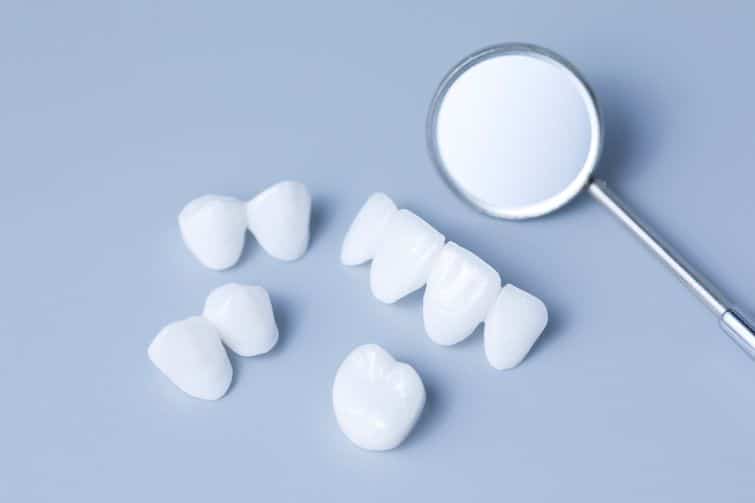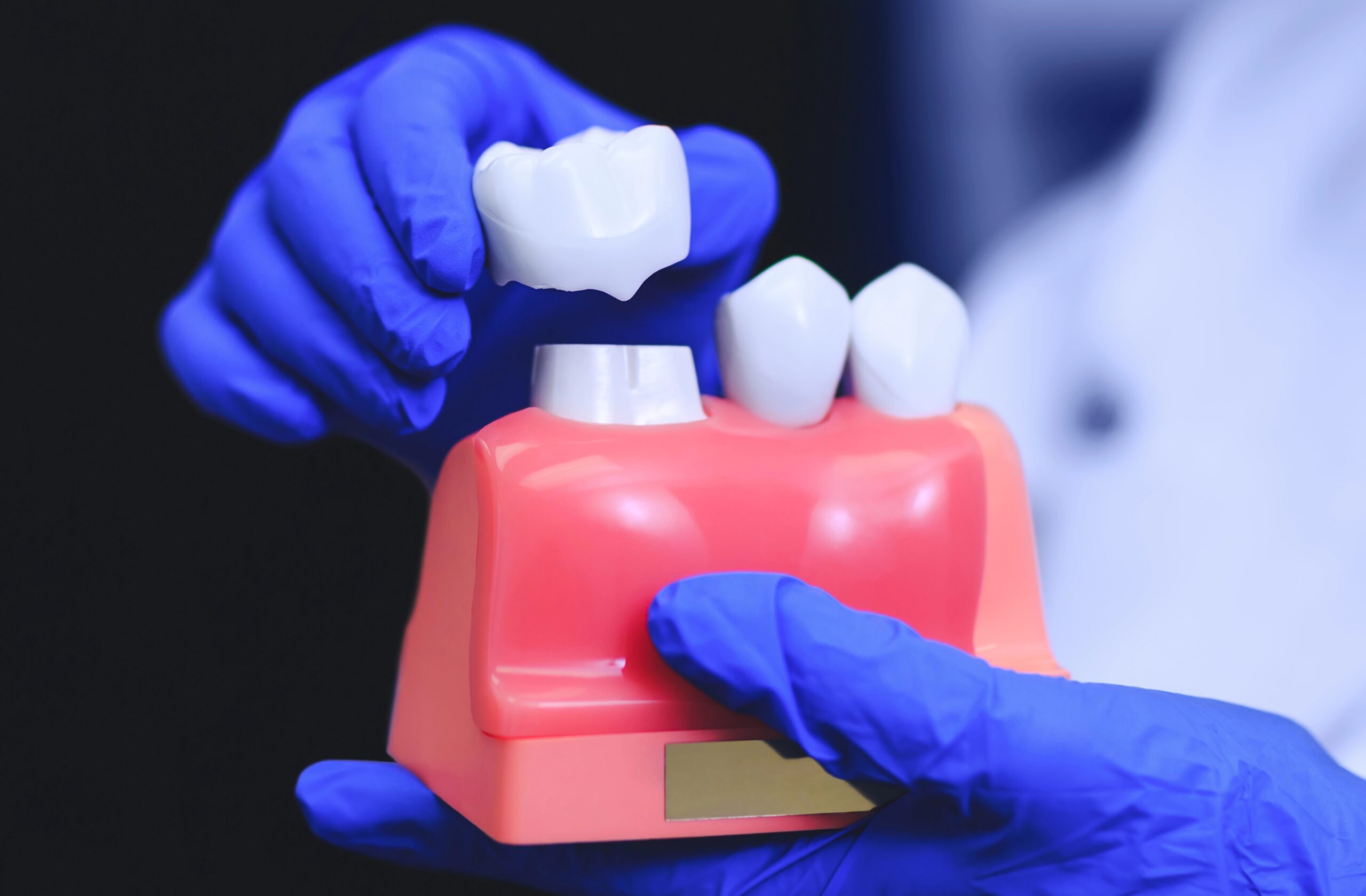
What Are Dental Veneers?
- Posted on June 16, 2022
Many people confuse dental veneers with dental crowns (also referred to as caps). While they work similarly and are made from the same materials, the main difference is that a dental veneer is attached to the front of your tooth's surface after a minimal prep done on the tooth.Dental veneers will then be shaped and coloured to match your natural teeth at the front of your mouth and can be used to replace multiple teeth (much like you see on many celebrities). A dental crown, however, will be fitted over a tooth abutment like a cap or be used to top a dental implant.
There are many benefits to getting permanent veneers whether you're looking to improve the appearance of your smile, or if a tooth has a minor crack or chip. We'll explain more in this blog.
What Is A Dental Veneer Made From?
Dental veneers can be made from various materials, though the most popular is porcelain. However, it will depend on your specific case and dental habits to determine which type of veneer is best for you. Whether you opt for a composite or porcelain veneer, they'll be hand crafted in a dental lab or right in your dentist's office.
Porcelain Veneers
Porcelain veneers are thin layers of yes, you guessed it, porcelain! This ceramic dental material is aesthetically-pleasing, durable and long-lasting. It will be permanently bonded to the tooth surface using dental cement after a mold has been created of your teeth for an accurate fit and color match. Temporary dental veneers may be placed while you wait for your permanent veneers.A minimal prep is done on your natural tooth in preparation for the veneers after being given a local anesthetic. Several teeth can be done at once.
Composite Resin Veneers
Composite veneers are made from synthetic materials that can be applied to the front surface of your tooth in a couple of different ways: directly or indirectly.Direct composite veneers are applied and layered directly onto your teeth, but your dentist will still etch part of your tooth's surface so the thickness is natural-looking. Your dentist will then harden the material with a laser or light. Indirect composite veneers are placed much like porcelain veneers – your teeth will be shaved down and a mold of your mouth will be created, as well as your custom-made shells. Your dentist may place temporary veneers to wear in the meantime. Afterwards, your composite resin veneers will be permanently bonded to your teeth.
Whether you're being given porcelain or composite resin veneers, they're a great option for people looking to improve the appearance of their smile or who have chipped teeth, broken teeth, yellowing teeth, uneven teeth, or following root canal treatment.
How Long Veneers Last Depends On A Few Factors
Just like with other dental treatments, there are certain guidelines you should follow in order to ensure your porcelain or composite veneer lasts as long as possible.Generally, porcelain veneers last upwards of 10 years or more and composite veneers last upwards of 5 years or more. In order to ensure your new dental veneers last, follow these tips:
- Continue to brush twice daily and floss once daily. Don't brush too hard – your dentist may also suggest using a soft-bristled toothbrush so you don't scratch the veneer's surface.
- Avoid chewing on hard objects or opening things with your teeth. This can easily lead to damaged teeth or affect the cementing agent. This also applies to biting into hard foods like candies and apples, for example.
- If you're a grinder, your dentist may talk to you about wearing night guards to prevent chipping your veneers.
- Visit your dentist regularly (every six months). They will address any cosmetic concerns before they have a chance to worsen and also ensure your optimal oral health.

Is This Cosmetic Dentistry Option Right For You?
Veneers can be made from porcelain or composite material. Regardless, they look like natural teeth and can be used for things like repairing a cracked or chipped tooth, a stained tooth, an uneven tooth, or restoring a tooth after tooth decay has been removed. They're typically crafted in a dental laboratory and then placed on the front of your tooth's surface using a strong bonding process.Following the veneer's placement, you may experience tooth sensitivity, but this shouldn't last more than a couple of weeks.
If you're wondering if this cosmetic dental procedure is right for you, speak to our dentist in Orangeville today.

Dr. Prabhdeep Kaur, a General Dentist, has been enriching the field of dentistry with her expertise for over 13 years, having obtained her license in Canada in 2015. A holder of a BDS degree, Dr. Kaur’s proficiency spans a wide array of dental services, including General and Cosmetic Dentistry, Wisdom Teeth Extractions, Invisalign, and more. Her commitment to her craft is further evidenced by her memberships in prestigious organizations like the Ontario Dental Association, the Academy of General Dentistry, and the Royal College of Dental Surgeons of Ontario.
Renowned for her patient-focused approach, Dr. Kaur emphasizes the importance of listening and customizing treatments to meet individual needs, viewing dentistry not only as a science but also as an art form dedicated to enhancing and restoring smiles. Her dedication to ongoing education ensures she remains at the cutting edge of dental advancements.
Outside her professional life, Dr. Kaur enjoys family time, travel, and cinema, adding a relatable and approachable dimension to her persona. She is passionate about delivering professional and quality dental care, driven by her desire to connect with people and address their dental needs effectively.
Dr. Kaur’s journey in dentistry serves as an inspiration for aspiring dental professionals, advocating determination, motivation, and enjoyment in their work. Follow her journey and professional updates on Instagram @drprabh84, where she continues to inspire both her patients and peers in the dental community.






